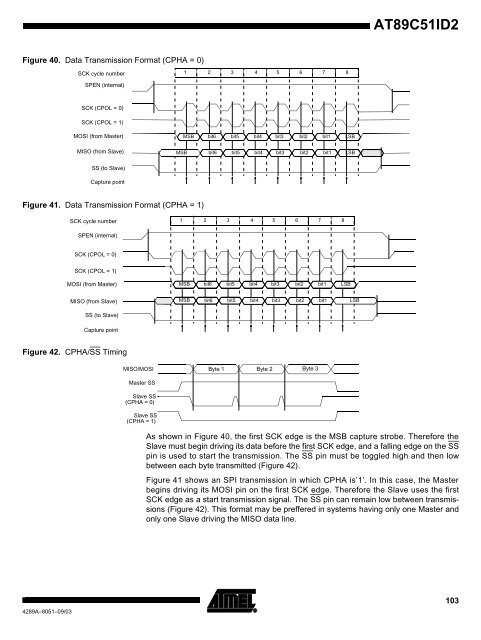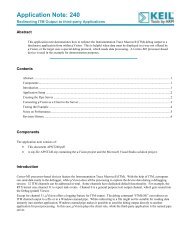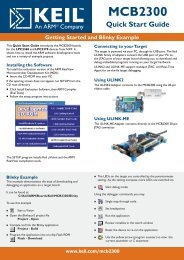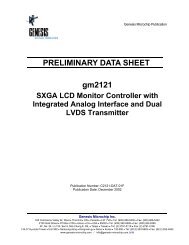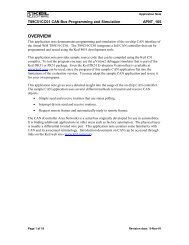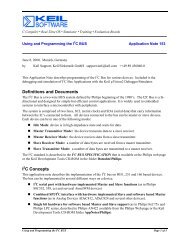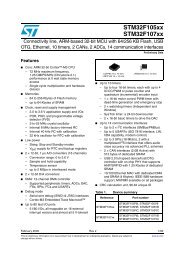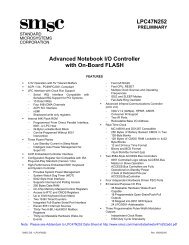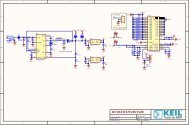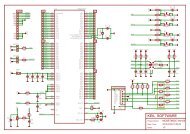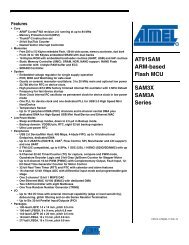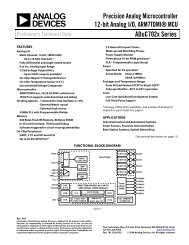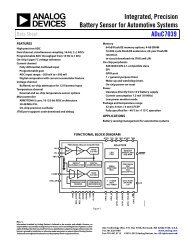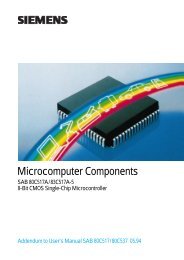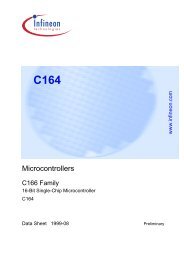Create successful ePaper yourself
Turn your PDF publications into a flip-book with our unique Google optimized e-Paper software.
Figure 40. <strong>Data</strong> Transmission Format (CPHA = 0)<br />
4289A–8051–09/03<br />
SCK cycle number<br />
SPEN (internal)<br />
SCK (CPOL = 0)<br />
SCK (CPOL = 1)<br />
MOSI (from Master)<br />
MISO (from Slave)<br />
SS (to Slave)<br />
Capture point<br />
Figure 41. <strong>Data</strong> Transmission Format (CPHA = 1)<br />
SCK cycle number<br />
SPEN (internal)<br />
SCK (CPOL = 0)<br />
SCK (CPOL = 1)<br />
MOSI (from Master)<br />
MISO (from Slave)<br />
SS (to Slave)<br />
Capture point<br />
Figure 42. CPHA/SS Timing<br />
MISO/MOSI<br />
Master SS<br />
Slave SS<br />
(CPHA = 0)<br />
Slave SS<br />
(CPHA = 1)<br />
1 2 3 4 5 6 7 8<br />
MSB bit6 bit5 bit4 bit3 bit2 bit1 LSB<br />
MSB bit6 bit5 bit4 bit3 bit2 bit1 LSB<br />
1 2 3 4 5 6 7 8<br />
MSB bit6 bit5 bit4 bit3 bit2 bit1 LSB<br />
MSB bit6 bit5 bit4 bit3 bit2 bit1 LSB<br />
Byte 1 Byte 2 Byte 3<br />
<strong>AT89C51ID2</strong><br />
As shown in Figure 40, the first SCK edge is the MSB capture strobe. Therefore the<br />
Slave must begin driving its data before the first SCK edge, and a falling edge on the SS<br />
pin is used to start the transmission. The SS pin must be toggled high and then low<br />
between each byte transmitted (Figure 42).<br />
Figure 41 shows an SPI transmission in which CPHA is’1’. In this case, the Master<br />
begins driving its MOSI pin on the first SCK edge. Therefore the Slave uses the first<br />
SCK edge as a start transmission signal. The SS pin can remain low between transmissions<br />
(Figure 42). This format may be preffered in systems having only one Master and<br />
only one Slave driving the MISO data line.<br />
103


